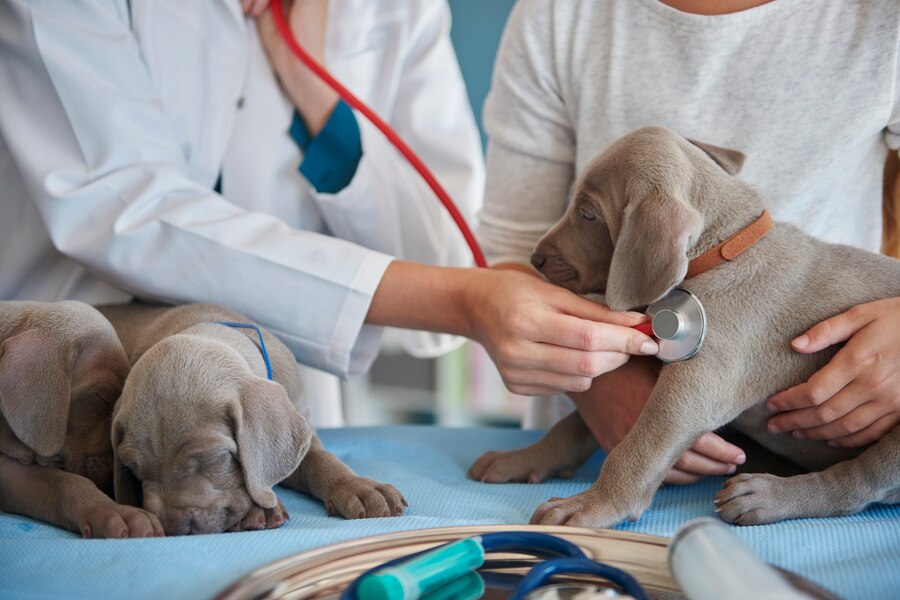Learn about common digestive issues in pets, their causes, symptoms, and prevention tips to keep your furry friends healthy and happy.
Common Digestive Issues in Pets and How to Prevent Them
Digestive health is a vital aspect of your pet’s overall well-being. Pets often experience digestive problems, which can cause discomfort and lead to serious health concerns if left untreated. Understanding these issues and how to prevent them is essential for every pet owner.
Common Digestive Issues in Pets

Pets, including dogs and cats, can experience a variety of digestive problems. Here are some of the most common ones:
1. Vomiting
- Symptoms: Frequent regurgitation of food or bile.
- Causes: Eating too fast, consuming spoiled food, or ingesting toxins.
- Treatment: Withhold food for a few hours and offer small, bland meals. Seek veterinary help if vomiting persists.
2. Diarrhea
- Symptoms: Loose or watery stools.
- Causes: Dietary changes, infections, or food allergies.
- Treatment: Ensure hydration and provide a bland diet. If diarrhoea lasts more than 24 hours, consult a vet.
3. Constipation
- Symptoms: Difficulty in passing stools, straining, or dry stools.
- Causes: Lack of fibre, dehydration, or lack of exercise.
- Treatment: Increase water intake, add fiber-rich foods, or use vet-prescribed laxatives.
4. Gastritis
- Symptoms: Abdominal pain, vomiting, and lethargy.
- Causes: Stomach inflammation due to irritants like spoiled food or chemicals.
- Treatment: Provide a bland diet and medication as prescribed by a vet.
5. Pancreatitis
- Symptoms: Vomiting, diarrhea, and loss of appetite.
- Causes: High-fat diets or obesity.
- Treatment: Immediate veterinary care, often involving a low-fat diet and medication.
6. Food Allergies and Intolerances
- Symptoms: vomiting, diarrhoea, and skin issues.
- Causes: Reaction to certain food ingredients.
- Treatment: Switch to hypoallergenic or elimination diets under veterinary guidance.
Causes of Digestive Issues in Pets
Understanding the causes can help you address and prevent digestive problems in your pet.
- Dietary Indiscretion: Pets eating inappropriate or spoiled food.
- Parasites: Worms like roundworms, hookworms, or Giardia.
- Sudden Diet Changes: Switching foods abruptly can upset the digestive system.
- Toxins and Foreign Objects: Ingesting harmful substances or non-food items.
- Medical Conditions: Diseases like pancreatitis, inflammatory bowel disease, or kidney issues.
Prevention Tips for Digestive Issues

Preventing digestive issues in pets involves maintaining a balanced diet and a clean environment.
1. Provide a High-Quality Diet
- Feed your pet age-appropriate, nutritionally balanced food.
- Avoid feeding table scraps or spicy, greasy foods.
2. Avoid Sudden Diet Changes
- Gradually transition to new food over 7–10 days to prevent stomach upset.
3. Keep Hydration Levels High
- Ensure your pet has constant access to clean, fresh water.
- Add moisture-rich foods like wet food or broth to their diet.
4. Regular Deworming
- Follow your vet’s recommended deworming schedule to prevent parasitic infections.
5. Monitor Meal Portions
- Overfeeding can lead to obesity and related digestive issues. Stick to portion guidelines.
6. Exercise Regularly
- Promote healthy digestion by providing regular physical activity.
7. Pet-Proof Your Home
- Keep trash bins secure and harmful substances out of reach to prevent accidental ingestion.
When to See a Vet
While minor digestive issues may be resolved with home care, consult a veterinarian if your pet shows:
- Persistent vomiting or diarrhoea lasting more than 24 hours.
- Blood in stools or vomit.
- Lethargy, dehydration, or loss of appetite.
- Signs of pain, such as whining or reluctance to move.
Early veterinary intervention can prevent minor issues from becoming life-threatening.
Home Remedies for Digestive Issues

1. Bland Diet
- Offer plain boiled chicken and white rice in small portions to ease an upset stomach.
2. Probiotics
- Use pet-safe probiotics to restore gut flora and improve digestion.
3. Pumpkin
- Add a teaspoon of plain, unsweetened pumpkin to meals to help with diarrhoea or constipation.
4. Ginger
- Small amounts of ginger can relieve nausea and improve digestion.
Maintaining your pet’s digestive health is crucial for their overall well-being. Recognizing common digestive issues in pets and implementing preventive measures can save your furry friend from discomfort and costly vet visits.
From a balanced diet to regular exercise, small changes in routine can significantly improve your pet’s digestive health. Always consult your vet for persistent or severe issues, as they can provide tailored advice and treatments.
For more tips on pet health, explore these related articles:

